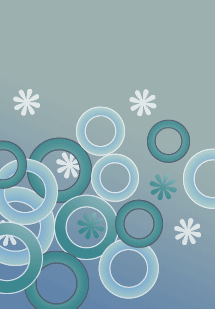Mind Over Matter - Stimulants
 Miscommunication
in the Brain
Miscommunication
in the Brain
Cocaine and amphetamines change the way the brain works by changing the way nerve cells communicate. Nerve cells, called neurons, send messages to each other by releasing special chemicals called neurotransmitters. Neurotransmitters are able to work by attaching to key sites on neurons called receptors.
One of the neurotransmitters affected by cocaine is called dopamine. Dopamine is released by neurons in the limbic system -- the part of the brain that controls feelings of pleasure.
Normally, once dopamine has attached to a nerve cell's receptor and caused a change in the cell, it's pumped back to the neuron that released it. But cocaine blocks the pump, called the dopamine transporter. Dopamine then builds up in the gap (synapse) between neurons.
The result: dopamine keeps affecting a nerve cell after it should have stopped. That's why someone who uses cocaine feels an extra sense of pleasure for a short time.
| << Previous Page |


